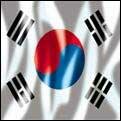|
By Anna Fifield in Seoul - August 13 2005 00:46
 In South Korea, committing adultery or breaking a promise to marry someone can land the transgressor in the dock. By the same token, there is a good chance that anyone who breaches foreign currency controls or becomes involved in a contractual dispute will end up with a criminal conviction. In South Korea, committing adultery or breaking a promise to marry someone can land the transgressor in the dock. By the same token, there is a good chance that anyone who breaches foreign currency controls or becomes involved in a contractual dispute will end up with a criminal conviction.
South Korea may have a developed economy, an elected government and sophisticated television phones, but its justice system remains stuck in the past.
On Monday, the day Koreans celebrate the 60th anniversary of liberation from Japan, President Roh Moo-hyun will pardon 4.2m criminals. Reprieves will be granted for everything from traffic violations and breaching the national security law which until this year labelled North Korea as the South's main enemy to business and political crimes.
While pardons are routinely granted on Chuseok (Korean thanksgiving), lunar new year and Buddha's birthday, this is the fourth-largest amnesty in the 57-year history of the Korean constitution.
The staggering scale of the amnesties reflects the criminalisation of South Korean society. The judicial system is at the heart of the problem there is no civil code to speak of in South Korea, so every transgression becomes a crime, and lawyers complain about the politicisation of the judiciary and almost universal powers of prosecutors.
"So much of what is a civil matter in the UK or the US is a crime in South Korea. For example if your company goes bankrupt, you are automatically a criminal so failed businessmen arepenalised through the courts," says Brendon Carr, an attorney at Aurora Law Offices in Seoul. "If you harass a competitor you can be prosecuted."
Mr Roh himself was jailed as a pro-democracy campaigner in his early political career and his four immediate predecessors served time. Prominent business people also have convictions in May the president pardoned 31 businessmen convicted of bribery, accounting fraud and other criminal charges, including vice-chairmen at Samsung, LG, Hyundai Motor and the chief executive of Asiana Airlines. The amnesties are designed to restore the businessmen's honour and allow them to get on with expanding the economy.
Appearances are important in South Korea so, despite the large number of "criminals", having a conviction carries a social stigma.
"In order to promote national unity and inject vitality into the economy, we decided to ask for mass amnesty," Park Byung-seok of the governing Uri party said recently.
The main opposition Grand National partycontends the president, struggling with low popularity and a minority government, is trying to buy approval from a large chunk of the voting public.
But lawyers say the problem is not political, but structural. The government must reform the judicial system rather than rely on presidential amnesties to deal with the problem of mounting convictions and to keep in check the powers of public prosecutors, they say.
A National Assembly committee last year found the courts issued search warrants for 99.3 per cent of requests from the public prosecutors, while courts boast about their 99 per cent conviction rate. There is also concern that bank accounts are tracked and conversations bugged without the required legal authority. The fear was exacerbated by the recent "Samsung-gate" scandal, during which the National Intelligence Service admitted it eavesdropped illegally for five years after 1997, when the government ordered it to stop.
Mr Roh has established a presidential committee on judicial reform but it is facing strong resistance from the prosecutors, who have even tried to drum up public opposition to proposed changes to the criminal court system.
Many hope the president will be able to push through reforms.
"South Korean courts are little more than kangaroo courts where judges justrubber-stamp the prosecutor's submissions," said a Seoul lawyer, asking not to be named for fear of upsetting judges.
"It's a sort of assembly-line system of justice, or rather, injustice."
|